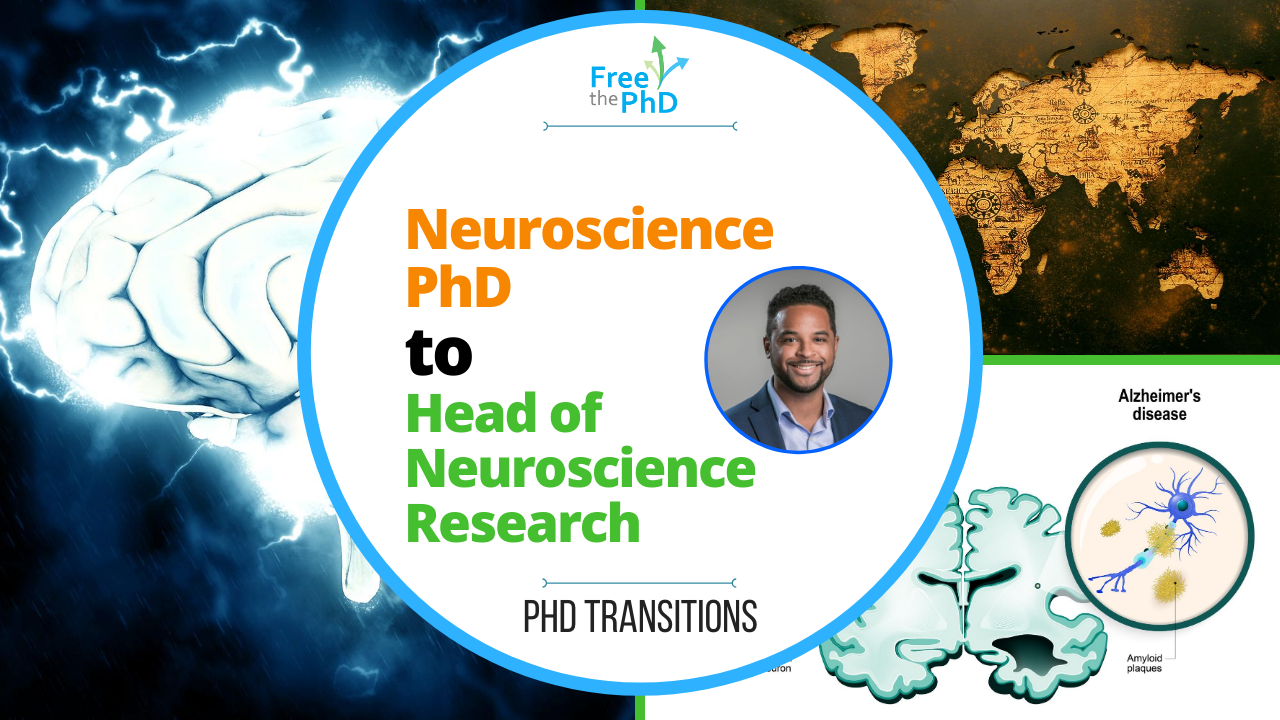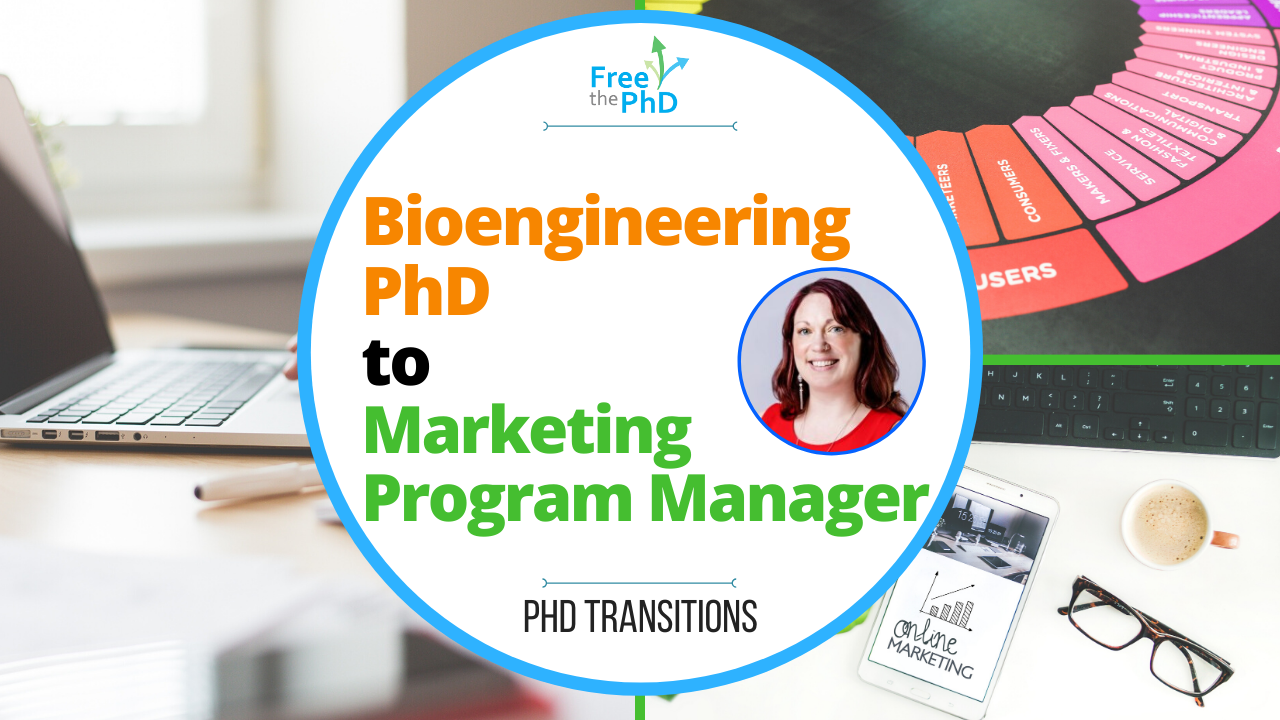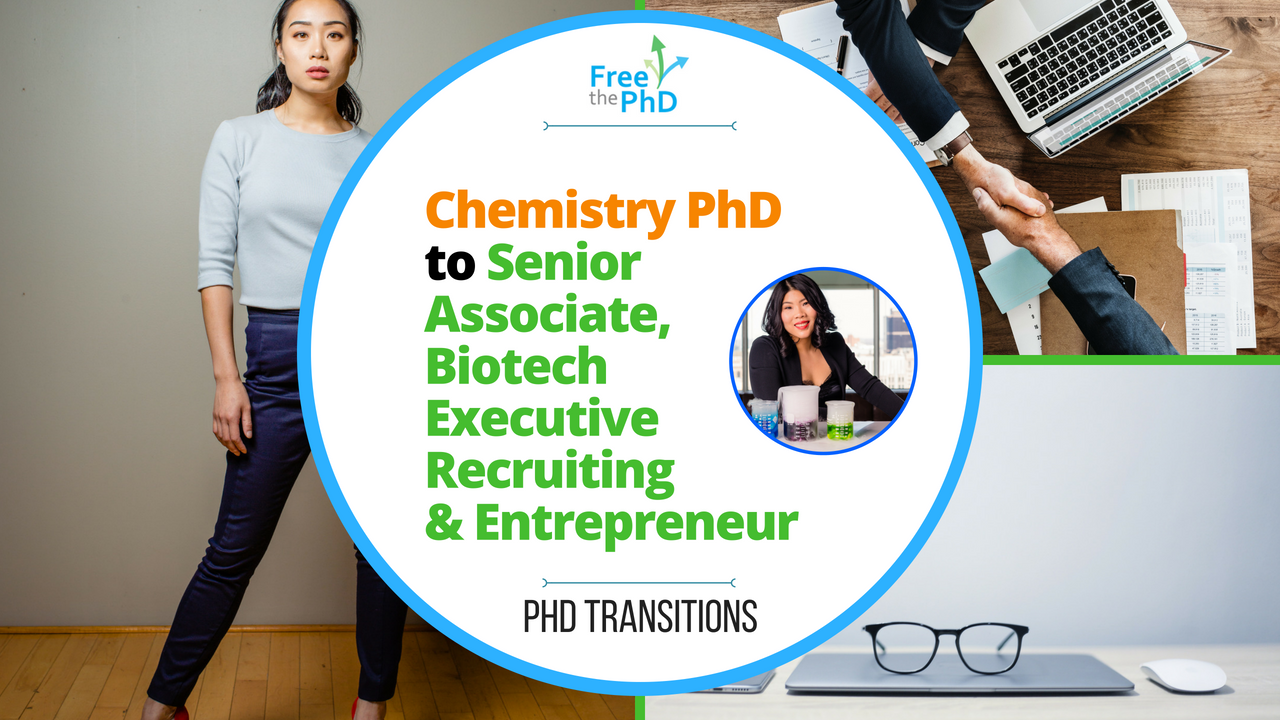Dr. Becky Fallon weaves a story detailing her path from graduate school to her current position as a Technical Sales Manager. She offers insight to her success and advice to PhD’s considering transitioning from academia to non-academic career opportunities.
Why did you choose to do a PhD and what did you study?
In hindsight it can sound like a well planned path, but in reality I waffled back and forth about my life’s trajectory at several different junctions – and still do to this day. Most of the training and jobs I have landed feel serendipitous more than deliberate. My life includes dozens of failed applications to schools and jobs, and includes opportunities I haphazardly decided not to pursue that could have changed my career path entirely. The messy version of the story includes me constantly debating how to spend my time between a myriad of interests, that range from athletics, to travel, to economics, to science. The streamlined story of how I became a scientist, however, goes something like this:
My junior year of high school I signed up to take AP Psychology and AP Biology. These classes challenged and interested me in a way high school never had before – I had found my passion. I spent hours of my time reading, making study guides, and talking about concepts I was learning. The following year I applied to colleges with strong science programs and I accepted an early decision offer from the University of Rochester where I majored in Brain and Cognitive Sciences. My senior year I worked part time in an animal behavior core facility at the University of Rochester Medical Center, and gained the skills I needed to land a position as a full time lab technician at the Medical University of South Carolina. Working as a technician, I met fantastic scientists at all levels who taught me, gave me freedom to execute projects, and helped solidify that I wanted to be a PhD scientist.
After working in the lab for 3 years I applied to graduate schools and decided to join the Cellular, Molecular, Developmental Biology and Biophysics program at Johns Hopkins University. The program offered a partnership appointment with the NIH, and after 6 years in grad school studying neuronal ensembles of addiction, I completed my dissertation research at the National Institute on Drug Abuse and became a “not-that-kind-of” doctor.
When did you start thinking about your next steps after the PhD?
When I started grad school I had aspirations of becoming a Principle Investigator and running my own lab. I loved coming up with hypotheses and theoretical experiments to answer questions that had no answers yet. However, by the time coursework was over and I started my third year of graduate school, I realized that I did not have the kind of laser focused passion or personality needed to make it through the many (low-paying) career steps that existed between where I was as a grad student and my “dream” Faculty position.
A quick personality test told me I was an extreme extrovert which explained why I preferred going to seminars and conferences over making my own discoveries solo at a lab bench. To branch out and exercise my extroverted-ness I started TAing courses on topics I wished I had taken as an undergrad – my favorite of which was Biological Anthropology. I also joined student interest groups like the Graduate Representative Organization and Graduate Consulting Club.
I ended up with elected positions in both groups at different times. I learned a lot about how university administration is run, basics of fundraising, and effective (also ineffective) management styles. I planned small and large scale events, and helped develop and edit a strategic plan for the university. And because all this wasn’t even enough socialization to counter-balance many hours alone at a microscope, I also worked for a company that ran a bar trivia show several evenings a week around Maryland that taught me a lot about entrepreneurship and reminded me there is a whole world outside of academia.
How did you make the transition?
As I added to my list of extracurricular activities, it became obvious to others that I was interested in a career outside of the laboratory. It sparked a lot of conversations between me and my peers, and led me to build a network both in science and outside science. I made a point to stay in touch with certain people. With my close personal network it was easy to socialize and schedule dinners or coffee dates together. And I kept up with my peripheral network by visiting booths at conferences annually or engaging with them on social media occasionally.

In the first few months of networking, I was recruited to a freelance scientific consulting role that I could do while finishing my degree. I had the freedom to only sign up for projects that interested me, and there was no obligation to join a project if I was busy during that project’s timeline. Over 3 years in this role I periodically worked on teams for major corporations making scientific recommendations on specific directions they were considering taking their business. I learned about relationship building with clients and how to communicate big scientific thoughts into digestible pieces for non-scientists. I found this challenging and fun, and continued working for this company (in addition to a side retail job for extra cash) for the 6 months after my PhD was completed. I took the freelance consulting position because I felt certain I wanted to do business management consulting after graduation, and it seemed like an appropriate transition step. I additionally participated in case competitions, attended resume workshops, joined interview practice groups, and studied negotiation tactics.
Despite all my preparation, when I applied and interviewed at consulting firms I started missing the science – which was unexpected because I simultaneously felt burnt out on the science. With this hesitation jumping into consulting, I began searching job boards at my university’s career center website and reached out to the network I had build of scientists who left academia. I was in search of non-academic job that were more science focused, like the freelance consulting job had been. One of my contacts had an opening at his company on the consultative sales team and offered to internally recommend me. I had not considered sales at all in the 4 years I explored careers before I was invited to this interview. I did an informational interview with my contact, researched about consultative sales and the products of the company, and went in prepared. I interviewed, asked a lot of questions, and finally decided it was the right next step for me. I negotiated on salary and finally took their offer.
What is your role now, and where do you feel you could move from here?
I stayed at that first company for a year. I had a lot of expectations of what working in the corporate world would be compared to academia and was both right and wrong. Unveiling some of the assumptions I had made led me to realize that I had specific needs that were not being met in that position, and I started considering a job change. I was grateful to have the experience and a year of successful sales metrics to add to my resume.
With my sales training, it was clearer to me how to pitch myself and leverage my skills into different roles. I ended up applying for a sales position at a startup company that designed and sold equipment I learned about during my PhD. The company checked all the boxes for things I wanted in my new job, and I accepted the offer to join their sales team. I still work for this second company and have, again, learned a lot in this role. I am happy where I am, but can see myself moving into different roles within the company, or possibly at other companies, or even in other career paths. The most important thing for me in any job I take next has less to do with a specific job title, but rather a broader set of criteria. For example, I want a job where I work on/with a team, I can work remotely when I need to, I feel fairly compensated, and every day isn’t the same routine. Even though I’m happy where I am, I keep my eyes open to opportunities, my resume updated, and continue to grow my network.

Any advice for fellow academics trying to transition?
- Invest time in your career search. The best thing I did for myself transitioning out of science was to take action and carve out time to attend different events and seek out opportunities in different fields. It was hard because research always left me feeling obliged to do one more thing, stay just a little later, but a non-academic job was something I wanted, so I invested. Learning about fields I had never considered and seeing what they had to offer was a way to gauge what I did and didn’t like in a job.
This allowed me to create filters for the infinite number of career options that felt overwhelming. I utilized my university’s network and career websites, social media groups, and perused event sites like Eventbrite to find inexpensive or free training. I also noticed since leaving grad school there has been a podcast boom, and there are now several podcasts that focus on jobs outside of academia for scientists that I wish I had multi-tasked listening to while doing mundane lab tasks. - Cultivate a network. I really value the network I’ve built, and it has helped me get and land almost every job I have had (including my random post-grad retail position!). I know as an extrovert it is probably more natural for me to network than it might be for others, but if you have the opportunity and find something or someone engaging I recommend you try and add them to your network.
A trick I have is keeping a digital list and box of business cards that indicate where I met someone, and what we talked about or what I saw them present. I have emailed my contacts years later to capitalize on these interactions, and I found referring to a really specific time, place, and topic many times has been all the “maintenance” I’ve needed. Social media connections are another low-effort way to build your network. Having a good LinkedIn profile is useful both for networking, and job hunting. - Find and practice skills you enjoy. In the early stages of considering other careers, explore different skills and hobbies to find out what you are good at and enjoy doing. If you are short on time for figuring this out, work backwards. Think about how you spend your time, what you read, what you watch, and what excites you in order to identify your skills. Skills can really be anything, but some easily translatable skills might include writing, teaching, organizing, designing, etc. Knowing what you are good at and what you like to do is important for finding the right role and leveraging yourself into a position. Even ways you spend your time that seem useless (i.e. Instagram) can be leveraged to a job (i.e. social media marketing) if you set yourself up properly.
- Start storytelling. Coming from a scientific and technical background stories may feel foreign and fluffy, but stories are one of the most impactful ways to convey information. Stories don’t have to be of the “once upon a time” variety; sometimes a story is formatted as bullet points that transition really well into each other. As you seek a job, the company is going to require you to have certain skills or experiences. The best way to share these is story form, whether it be on your resume, in an interview, or in a cover letter.
If you are early in the process, stories can be developed by taking your skills and actively seeking out a trajectory that lands you with a tangible result (i.e. starting a blog). If you have less time, it can be done by segmenting previous accomplishments or skill sets into a beginning, middle, and end. Ask yourself: what is the skill I’m highlighting with this story? How can I highlight what I did to practice or maintain this skill? What did my efforts result in? The earlier you can create a mindset shift that frames the way you plan and execute tasks as stories, the better you will be at storytelling – and, hot tip: the better you will be at engaging people while networking. - Edit yourself. You are a huge, whole, dynamic person, and there are lots of things you can share about yourself, but not everything is always relevant or needed. An applicant who can see what the job really wants, and can parse through their whole life to tell the right set of stories will be more likely to land a job. Identifying these key points worth sharing can be hard, and I’ve found informational interviews with people in similar job positions or at the company I’m applying to is most useful for making these edits. Editing accomplishments can be a really big mindset shift from academia, where an academic CV is a dry laundry list of everything you have ever done.
Outside of academia, there is a reason it is recommended to have a one page resume; companies want to know you can make it easy for them, figure out what is important to share, and be concise. Because each job may have different needs, I keep a “master list” of everything I have done, in story-ish form in one place. For different jobs, I pick and chose from this master list what to share in order to match a role. And if you are like me, it is also nice to have a home for the accomplishments that felt important to you but are not important to anyone else.
Or, you can do what I did here and use another outlet to share these B-list jobs – (shout out to being a trivia host!).
By Camillia Monestime, Ph.D.
Got questions or comments, or aspire towards a similar career path but unsure how to get started? We’ve helped PhDs like you to land research, consulting, science communication, commercial, and client facing jobs with step-by-step, realistic guidance, based on our first-hand experience working away from the bench. Join our Free the PhD Careers Community for personalized help with your resume, networking, interviewing and skill-building to find a life you love outside academia!




